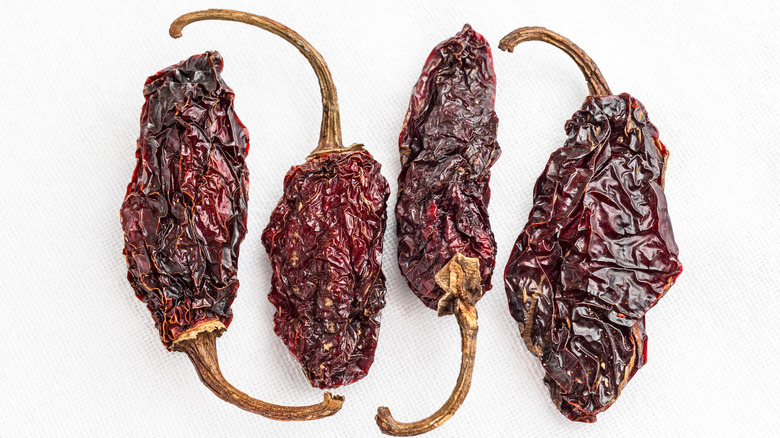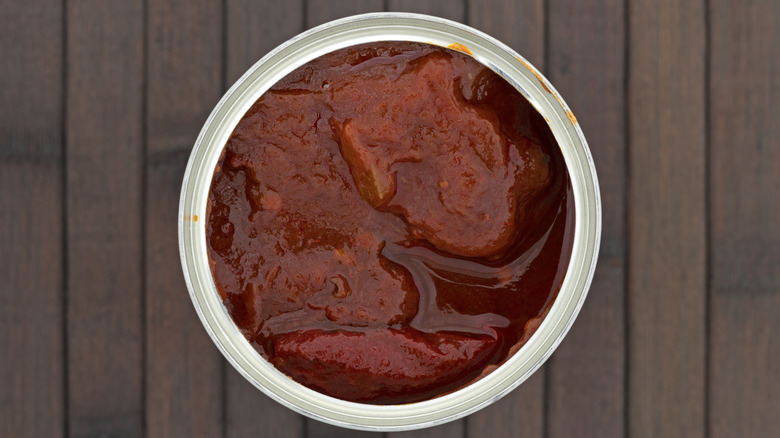A Chipotle Pepper Isn't What You Think It Is
Have you ever wandered the produce aisles of your local grocery store looking for a chipotle pepper you needed for a recipe, only to find none? Don't blame your retailer. There's a reason you'll never find a chipotle there.
Why? There are habaneros, banana peppers, bell peppers, poblanos, Anaheims, and serranos. You might even find rarer members of the genus Capsicum, which encompasses peppers from the sweet and mild to the aggressively spicy.
So, why no chipotles? It's a trick question, actually, because a chipotle isn't a pepper variety. As Taste Atlas puts it, chipotles are simply ripe jalapeños that have been smoked and dried. The word "chipotle" comes from "chilpoctli," which means "smoked pepper" in the Nahuatl language spoken by the Aztecs and others who were native to Mexico and Central America. According to Spices Inc., it was this ancient civilization near what is now Mexico City that first developed the practice of smoking jalapeños.
Chipotles can bring extra flavor to tacos, fajitas, soups, chili, dips, and more. You can add them to marinades or condiments like ketchup, barbecue sauce, mayonnaise (which people on the subreddit r/todayilearned highly recommend), or tartar sauce to take their spice level up a level, per Bon Appétit. You can purchase them dried or canned in adobo sauce — check your "ethnic" or Latin foods aisle. MasterClass notes you can also buy or make chipotle powder if you don't want to deal with whole peppers.
Different jalapeños make different chipotles
There are many varieties of jalapeño peppers, so naturally, there are also different types of chipotles. They generally range in spiciness from 2,500 to 8,000 Scoville units, according to MasterClass (which isn't that high, as bell peppers are a 0, and Carolina reapers measure 2.2 million). The chipotle's predominant flavor is smokiness, but they also have an inherent sweetness.
There are two types of chipotles, according to Spices Inc. Chipotles moritas have a "smoky, sweet, chocolatey flavor," and are well suited for "adobo sauce, casseroles, chicken and meat dishes, dips, marinades, relishes, sauces, soups and stews." In moritas, you'll taste applewood or pecan wood, as well as a "raisin-cherry fruitiness." Chipotles mecos are known for their deep flavor and dominant sweet smokiness, and are great in "BBQ sauce, brownies, dips, marinades, potato dishes, sauces, soups and stews."
MasterClass notes that you can make your own chipotle peppers, but you'll need a smoker. Just smoke red, ripe jalapeños at 200°F for about three hours. (A "charcoal grill with hot coals on one side and wood chips on the other" will also work. Just put the peppers above with the wood chips.) Prepare them for storage by drying them in a dehydrator or leaving them in a 200° oven for 12 hours.
However you get them, chipotles will add heat, smokiness, and sweet pepper flavor to whatever you're cooking.

